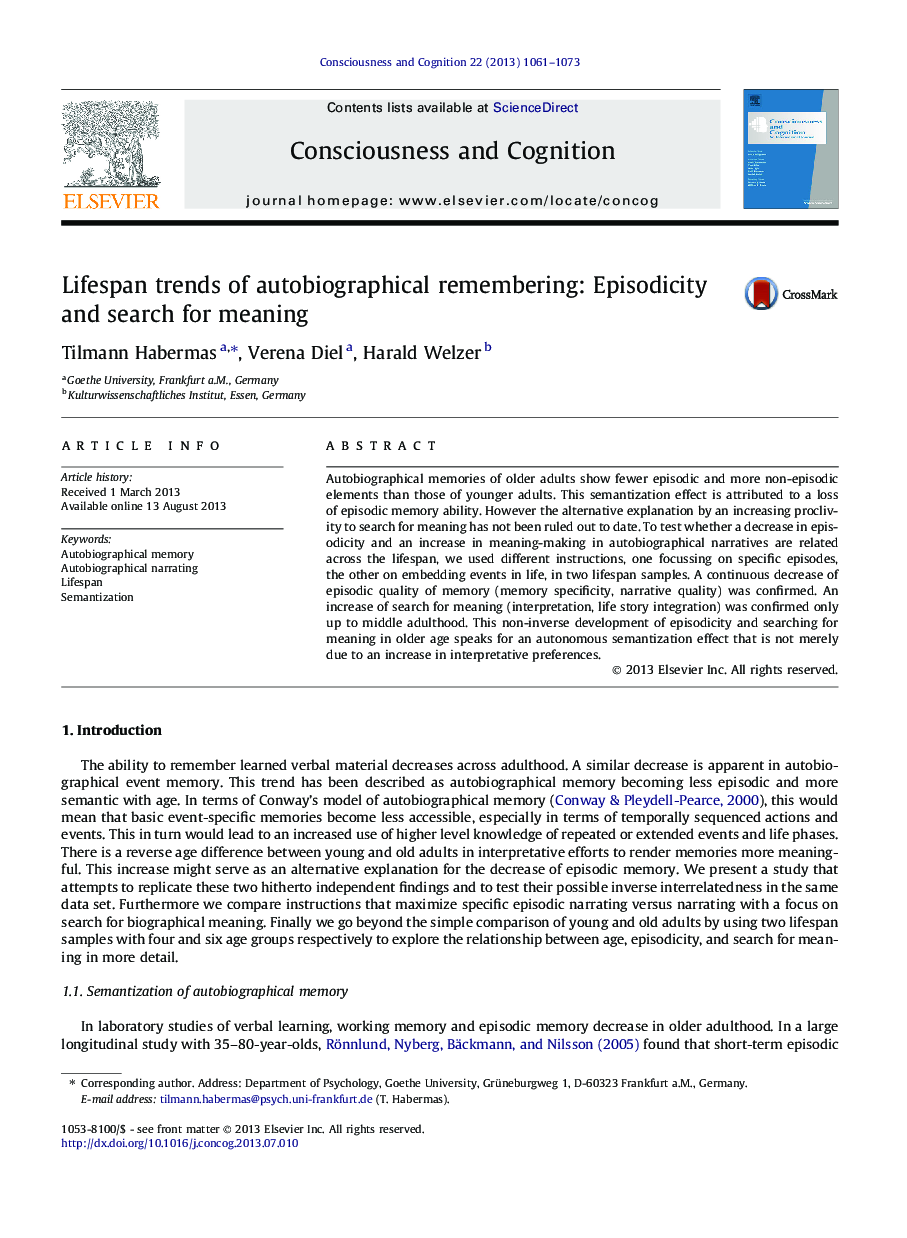| Article ID | Journal | Published Year | Pages | File Type |
|---|---|---|---|---|
| 10458479 | Consciousness and Cognition | 2013 | 13 Pages |
Abstract
Autobiographical memories of older adults show fewer episodic and more non-episodic elements than those of younger adults. This semantization effect is attributed to a loss of episodic memory ability. However the alternative explanation by an increasing proclivity to search for meaning has not been ruled out to date. To test whether a decrease in episodicity and an increase in meaning-making in autobiographical narratives are related across the lifespan, we used different instructions, one focussing on specific episodes, the other on embedding events in life, in two lifespan samples. A continuous decrease of episodic quality of memory (memory specificity, narrative quality) was confirmed. An increase of search for meaning (interpretation, life story integration) was confirmed only up to middle adulthood. This non-inverse development of episodicity and searching for meaning in older age speaks for an autonomous semantization effect that is not merely due to an increase in interpretative preferences.
Keywords
Related Topics
Life Sciences
Neuroscience
Cognitive Neuroscience
Authors
Tilmann Habermas, Verena Diel, Harald Welzer,
